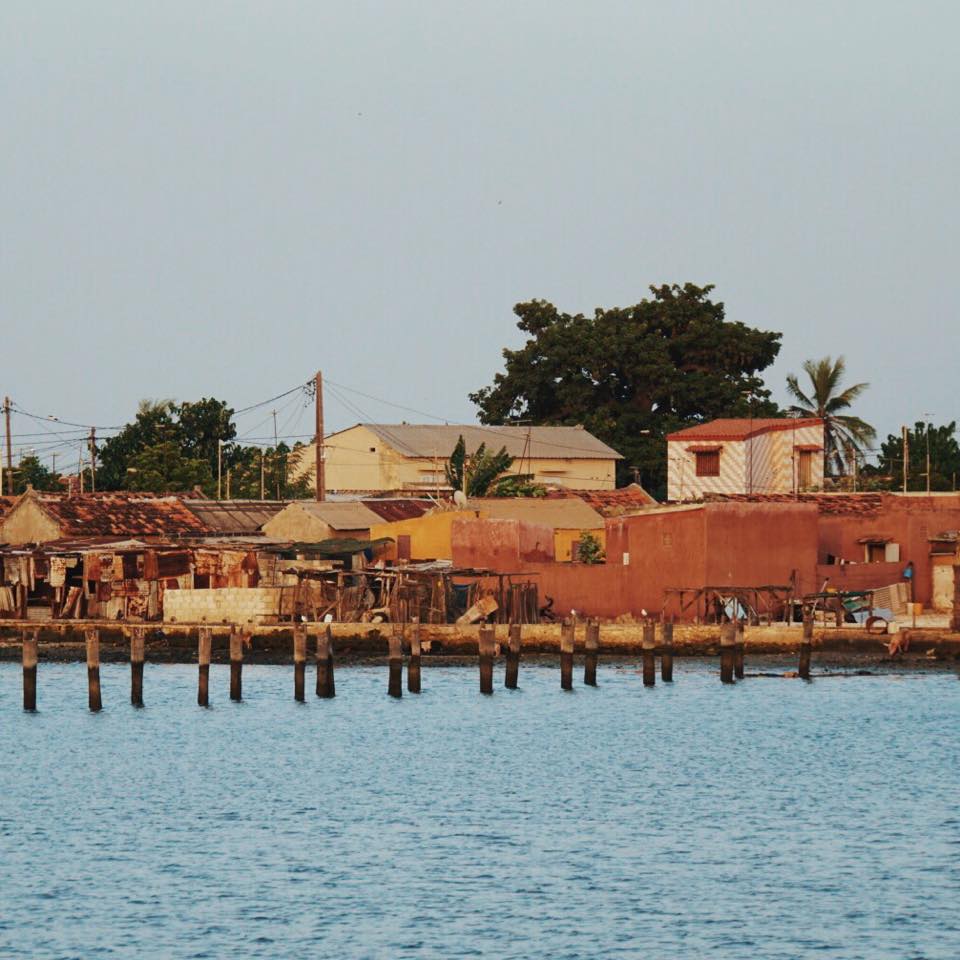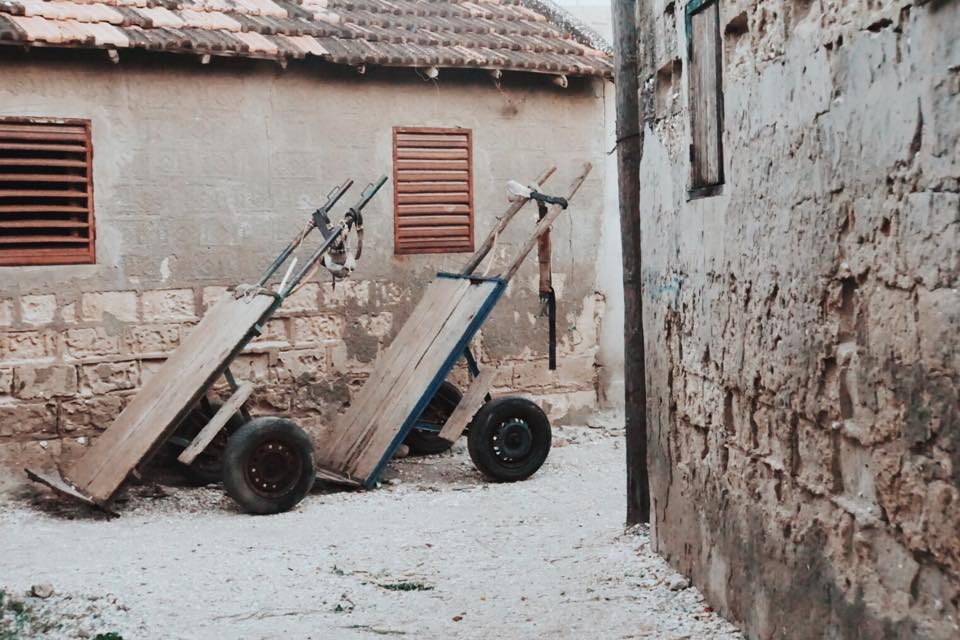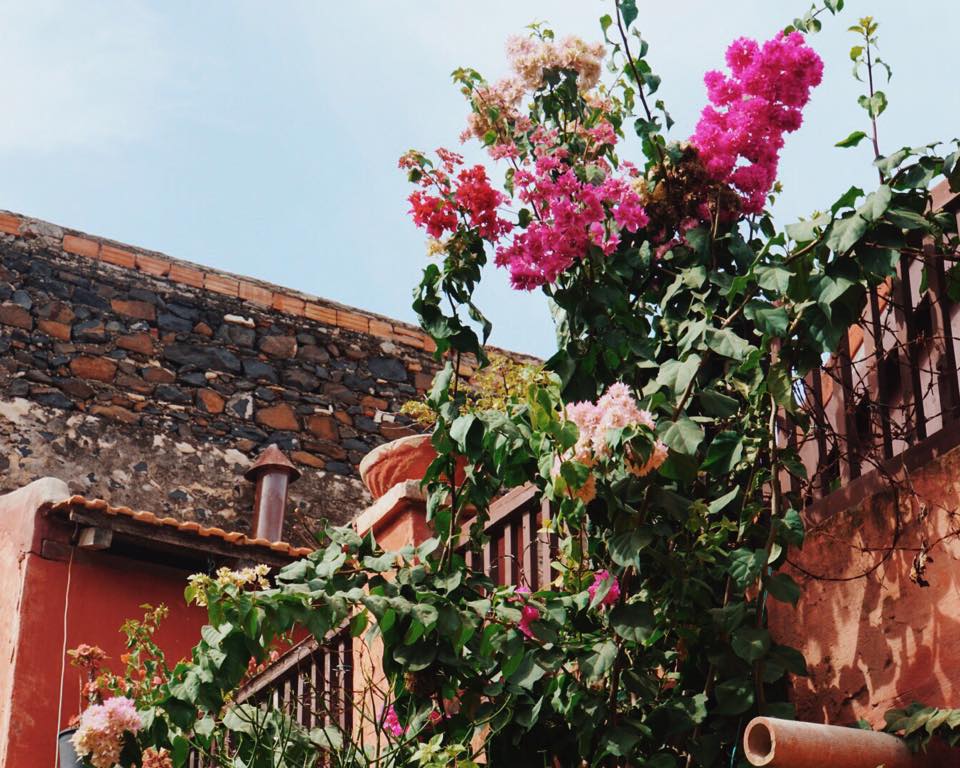Mohammed kept trying to run me over with his tricycle. He was only four, but was already the tyrant of his little kingdom of the couches in the main room of the house and the small television that only seemed to play Spanish soap operas dubbed in French. When anyone tried to invade his kingdom, he blew fart sounds into his or her face.
He defended his territory in such a manner when his older sister entered the room, but immediately stopped when his father followed in after her. She laid a cloth on the floor and beckoned me to squeeze soap onto my hands and rinse them in the bucket. We all sat upon the cloth surrounding the silver platter on the floor and waited for the father to begin eating. They used their hands and I used a spoon and they kept passing the best bits of the fish or the crispiest rice to my side of the platter. Every time I put down my spoon, the family would ask why I was not eating, was the food good, and other entreaties that made me pick up the spoon once more until my bursting stomach begged me to stop and say “sourna,” a Wolof word indicating the end of a meal. They insisted I sit on the best couch, deemed so because it was closest to the fan, and so I rested until Mohammed woke me up with his farting sounds.
The next day, I bid farewell and let Mohammed reign in peace. I took a quatorze-places back to Dakar. Literally translated, quatorze-places means ‘14 places’ in French, but the term was a bit misleading because though there were 14 people squished into the van, there were not 14 places. As I sat in the back row of the vehicle with four other people and a bird, I thought about Mohammed and his family and the town where they lived on an island made of clamshells. I remembered drifting in and out of the streets near their home and sitting on a bench near the sea. The water scattered on and off the shore and when I looked up, I could see the cemetery where Muslims and Christians are buried together, outlined by bright blue lights. In a nearby house, a man played reggae on the guitar.


Three years later, I can still remember this music, the town, and Mohammed. Though this was a space I intersected less than 24 hours, I remember Joal-Fadiouth as a vibrant place for its serenity and tolerance. Because I spent such a short period of time there and had no purpose there other than to observe, it felt more like a dream than reality that my memory has surely overromanticized, prompting the question: does the transience of an experience shape our perception of it? In our reading, Immersion, Janet Murray describes immersion as being a “movement out of our familiar world, the feeling of alertness that comes from being in this new place” (Murray 1). This sense of immersion is what gave this space meaning, a specific emotional context, and made it a place that I will remember.
